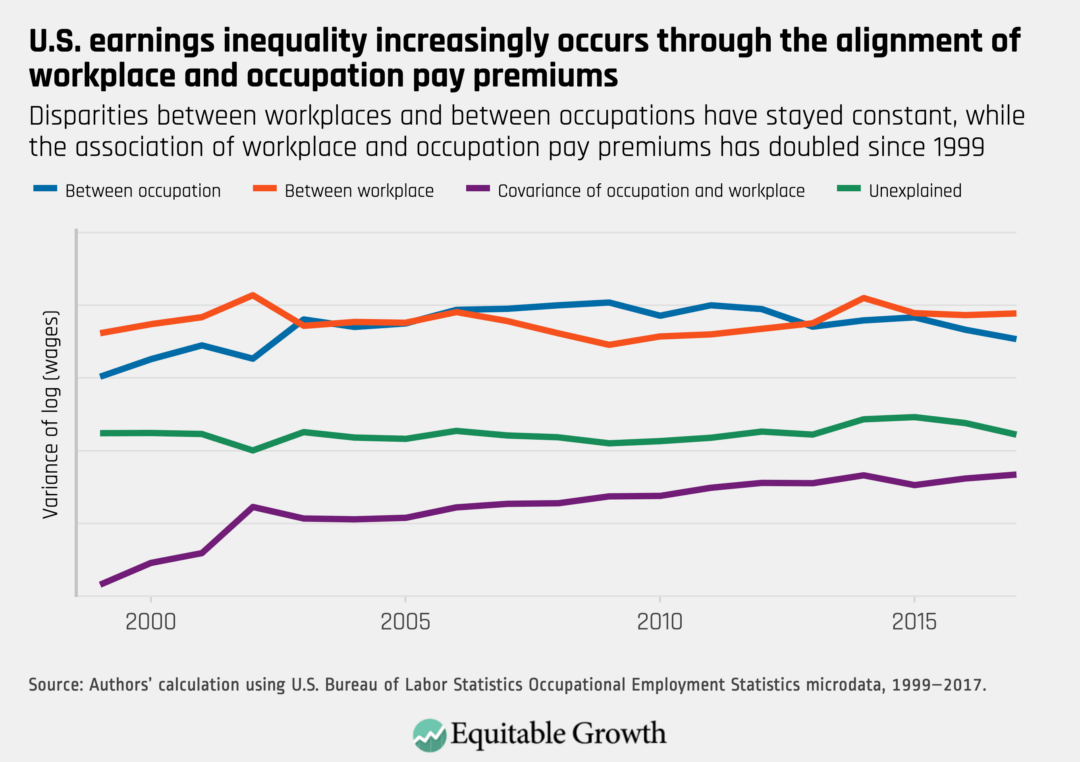https://www.nytimes.com/2021/03/25/technology/amazon-union-politics.html
WASHINGTON — Amazon is aligned with the Biden administration on several fronts.
It backs a $15-an-hour federal minimum wage. It has pledged to meet all the goals of the Paris climate agreement on reducing emissions. It has met with the administration to discuss how to help with the distribution of Covid-19 vaccines.
But a union drive at one of its warehouses in Alabama has the retailer doing a political balancing act: staying on the good side of Washington's Democratic leaders while squashing an organizing effort that President Biden has signaled his support for.
Amazon workers in Bessemer, Ala., have been voting for weeks on whether to form a union. The voting ends Monday. Approval would be a first for Amazon workers in the United States and could energize the labor movement across the country.
Labor organizers have tapped into dissatisfaction with working conditions in the warehouse, saying Amazon's pursuit of efficiency and profits makes the conditions harsh for workers. The company counters that its starting wage of $15 an hour exceeds what other employers in the area pay, and it has urged workers to vote against unionizing.
Labor leaders and liberal Democrats have seized on the union drive, saying it shows how Amazon is not as friendly to workers as the company says it is. Some of the company's critics are also using its resistance to the union push to argue that Amazon should not be trusted on other issues, like climate change and the federal minimum wage.
Refer someone to The Times.
They'll enjoy our special rate of $1 a week.
Amazon has always fought against unionizing by its workers. But the vote in Alabama comes at a perilous moment for the company. Lawmakers and regulators — not competitors — are some of its greatest threats, and it has spent significant time and money trying to keep the government away from its business.
Amazon's business practices are the subject of antitrust investigations at the Federal Trade Commission and in multiple state attorney general offices. Mr. Biden on Monday nominated Lina Khan, a legal scholar who came to prominence with her critique of the company, for a seat on the F.T.C.
"I think everyone is seeing through the P.R. at this point and focusing on both their economic and political power," Sarah Miller, a critic of Amazon, said about the company. Ms. Miller, who runs the American Economic Liberties Project, an antitrust think tank, added, "I think the narrative is cooked now on their status as a monopoly, their status as an abusive employer and their status as one of the biggest spenders on lobbying in Washington, D.C."
Drew Herdener, Amazon's vice president for worldwide communications, said in a statement that the company shared common ground with the Biden administration on climate change, immigration reform, the minimum wage and pandemic policy, and was "seeing really positive collaboration on those fronts" with the White House.
"As it relates to progressive Democrats in general, we've been surprised by some of the negative things we've seen certain members say in the press and on social media," he said. "If there's a progressive company in this country, it's Amazon. Find me another large company paying two times the minimum wage, providing great health benefits from Day 1, 95 percent education reimbursement, safe working environment, and so on. We really think we are an example of what a U.S. company should be doing for its employees."
Image
Lina Khan, a nominee for the Federal Trade Commission.Credit...Lexey Swall for The New York Times
Amazon spent $18.7 million on federal lobbying last year, compared with $2.1 million a decade ago, according to the Center for Responsive Politics. Its lobbyists press their employer's case on a variety of issues, like how drones are regulated and the laws that govern pharmacies.
Consumers adore Amazon. In late 2019, a national survey by The Verge, a technology news site, found that 91 percent had a favorable view of the retail giant. When professors at Georgetown and New York Universities asked Americans in 2018 which institutions they had the most confidence in, only the military ranked higher than Amazon.
Still, when Jeff Bezos, the chief executive, testified before Congress last year, he faced accusations that the company squeezes the small businesses that use its online marketplace. A liberal philanthropic organization funded a network of activists to press Amazon on privacy, competition and labor issues. They have also attacked Mr. Bezos, the richest person in the world by some measures, for his personal wealth.
Amazon has made efforts to reach out to the new administration. Dave Clark, who runs the company's consumer business, sent a letter to the White House in January offering to help with the distribution of the coronavirus vaccine and met virtually with Jeff Zients, the White House's coronavirus coordinator, to discuss the vaccine rollout.
In December, the company also hired the lobbyist Jeff Ricchetti, whose brother, Steve Ricchetti, is a longtime aide to Mr. Biden and now a counselor to the president. In the final quarter of last year, Amazon paid Jeff Ricchetti $60,000, according to disclosure forms he filed with the government.
Image
An Amazon warehouse in Kent, Wash. According to a 2019 survey by The Verge, 91 percent of people in the United States had a favorable view of Amazon.Credit...Ruth Fremson/The New York Times
The company's top lobbying and communications executive, Jay Carney, was a communications director for Mr. Biden during the Obama administration. President Barack Obama later named Mr. Carney the White House press secretary. He has deep relationships with Mr. Biden's inner circle, and has played in a garage band with Secretary of State Antony Blinken.
Under Mr. Carney's leadership, Amazon has taken steps to satisfy its liberal critics. In 2018, Senator Bernie Sanders, independent of Vermont, attacked the company over its wages. Not long after that, the company announced that it would raise its minimum wage to $15 an hour and push federal policymakers to do the same.
"We listened to our critics, thought hard about what we wanted to do and decided we want to lead," Mr. Bezos said in a statement at the time.
Amazon has promoted the $15-an-hour minimum in ads in publications frequently used to reach government officials, including Politico and The New York Times. Its lobbyists have pushed for a federal law raising the wage.
The union organizers in Bessemer have increasingly attracted support from the White House and top lawmakers in Congress. Labor leaders spent weeks pushing Mr. Biden's staff to have him weigh in on the election at the warehouse.
Their lobbying paid off: In February, Mr. Biden appeared in a video that didn't mention Amazon explicitly but was seen as a clear sign of support to the union. In the video, he said there "should be no intimidation, no coercion, no threats" from employers in coming union elections, including in Alabama.
"I didn't speak with the president directly, but my understanding was that the second this hit the president's briefing book, he was like, 'I'm in,'" said Sara Nelson, the president of the Association of Flight Attendants.
The Senate majority leader, Chuck Schumer of New York, and Speaker Nancy Pelosi of California both support the unionization effort, as do many other Democrats in Congress.
"We've got to protect every worker's right to form and join a union, and to bargain collectively for better pay, quality health care, a safer workplace and a secure retirement," said Senator Patty Murray, a Democrat from Washington, where Amazon has its main headquarters. "That absolutely includes the Amazon workers in Alabama, just like workers in Washington State and across our country."
Amazon's opposition to the union drive could scuttle some of the good will it established among Democrats with its support for a higher federal minimum wage, some liberals said.
Image
Representative Andy Levin, left, a Michigan Democrat, visiting the Amazon warehouse in Alabama after meeting with workers and organizers involved in the unionization effort.Credit...Megan Varner/Getty Images
Mr. Sanders said he appreciated Amazon's help on the minimum wage. "On the other hand," he said, "to my mind, I find it hard to understand why Jeff Bezos, the owner of Amazon and the wealthiest guy in the world, worth about $182 billion, is spending millions of dollars fighting a union organizing effort in Alabama, where his workers are trying to organize for better wages and better working conditions."
But he said he would ultimately approach the company "issue by issue."
Mr. Sanders will appear at a union event in Alabama with the rapper Killer Mike on Friday. Mr. Clark, the Amazon executive, responded to the news with derision on Wednesday evening.
"I often say we are the Bernie Sanders of employers, but that's not quite right because we actually deliver a progressive workplace to our constituents," he said on Twitter.
It recalled the message Amazon had waiting for a delegation of progressive lawmakers who met with union representatives in Alabama this month.
At the warehouse, workers held up a large banner with text in bold letters: "CONGRESS: PLEASE MATCH AMAZON'S $15/HOUR MINIMUM WAGE!"
Karen Weise contributed reporting.
-- via my feedly newsfeed


